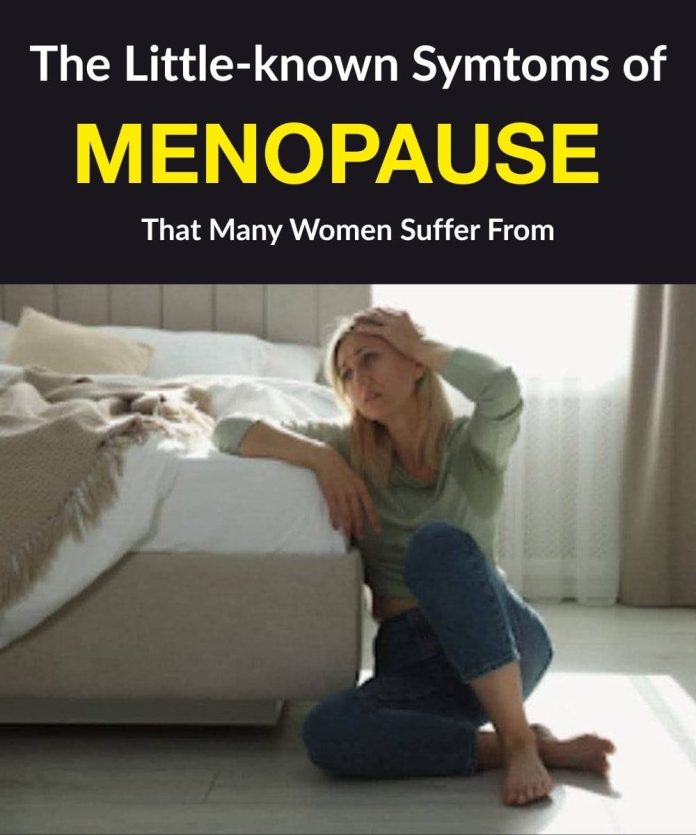Menopause is a natural biological process that signifies the end of a woman’s reproductive years. Typically occurring between the ages of 45 and 55, menopause marks the cessation of menstruation and a significant shift in hormonal balance. While it’s a universal experience for women, the symptoms and their intensity can vary widely.
Menopause is officially diagnosed after a woman has gone 12 consecutive months without a menstrual period. This transition doesn’t happen overnight; it unfolds in stages:

- Perimenopause: This phase can begin several years before menopause. During perimenopause, estrogen and progesterone levels fluctuate, leading to irregular menstrual cycles and various symptoms.
- Menopause: This stage is confirmed when a woman hasn’t had a menstrual period for 12 months. The ovaries have significantly reduced hormone production, leading to the end of menstruation.
- Postmenopause: The years following menopause are termed postmenopause. While many symptoms may ease, the decrease in estrogen can have long-term effects on health.
The menopausal transition brings a variety of symptoms, both physical and emotional:
- Hot Flashes and Night Sweats: Sudden feelings of warmth, often intense, that can disrupt daily activities and sleep.
- Sleep Disturbances: Many women experience insomnia or disrupted sleep patterns.
- Mood Changes: Fluctuating hormones can lead to mood swings, irritability, or even depression.
- Vaginal Dryness and Discomfort: Reduced estrogen can cause thinning of vaginal tissues, leading to dryness and discomfort during intercourse.
- Decreased Libido: Hormonal changes can affect sexual desire.
- Cognitive Changes: Some women report memory lapses or difficulty concentrating.
Beyond the immediate symptoms, menopause can influence long-term health:
- Bone Health: Decreased estrogen accelerates bone loss, increasing the risk of osteoporosis.
- Cardiovascular Health: The protective effect of estrogen on the heart diminishes, potentially raising the risk of heart disease.
- Metabolic Changes: Weight gain, especially around the abdomen, can occur, along with changes in cholesterol levels.
While menopause is a natural process, its symptoms can be managed:

- Hormone Replacement Therapy (HRT): HRT can alleviate many menopausal symptoms by supplementing estrogen and progesterone. However, it’s essential to discuss potential risks and benefits with a healthcare provider.
- Non-Hormonal Treatments: Antidepressants, blood pressure medications, and other drugs can help manage specific symptoms like hot flashes or mood swings.
- Lifestyle Adjustments: Regular exercise, a balanced diet, and stress-reducing activities like yoga or meditation can improve overall well-being.
- Vaginal Estrogen: For localized symptoms, such as vaginal dryness, low-dose vaginal estrogen can be effective.
It’s crucial to consult with a healthcare provider if:
- Symptoms are severe or interfere with daily life.
- There’s unexpected bleeding after menopause.
- You’re considering starting or stopping HRT.
Regular check-ups can help monitor health changes and manage risks associated with menopause.
Menopause is a significant life transition, but with the right knowledge and support, women can navigate this phase with confidence. Understanding the changes occurring in your body and seeking appropriate care can lead to a healthy and fulfilling postmenopausal life.

















